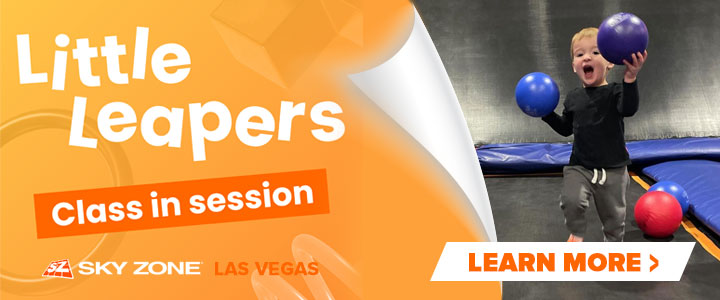Raising Safe & Strong Kids in Las Vegas: 2025 Resources Every Local Family Needs to Know
Raising kids isn’t easy—and doing it in a fast-paced city like Las Vegas brings its own unique set of challenges and beautiful opportunities. April is Child Abuse Awareness Month, and this article is here to empower—not scare—you with tips, tools, and local resources. Here’s what you’ll find:
Friendly ways to explain safety and body boundaries
Local organizations offering parenting classes and support
Fun and meaningful ways to participate in Awareness Month
What to do (and who to call) if you’re ever worried about a child’s safety
Understanding Child Abuse Awareness Month in a Family-Friendly Way
Let’s face it: “child abuse” is a heavy phrase. But Awareness Month doesn’t have to be doom and gloom. Instead, think of it as a yearly reset—a time for families to check in, reconnect, and equip themselves with positive ways to grow stronger together.
Talking about child safety isn’t about instilling fear. It’s about creating environments where kids feel safe to speak up, ask questions, and build trust with the adults around them. And that starts with open, age-appropriate conversations.
Why Awareness Matters in Every Home
Whether you’re a new parent or a seasoned caregiver, creating a safe home begins with awareness. Kids who understand what’s okay and what’s not are more confident, communicative, and capable of asking for help.
- Awareness helps prevent harm before it happens
- Builds stronger parent-child trust
- Helps families support each other and the wider community
Explaining Safety and Boundaries to Kids Gently
So, how do you talk about tough topics without scaring your kids? You make it normal.
Use real-life scenarios like bath time, sleepovers, or hugging relatives to casually introduce the idea of consent and body ownership.
Here are a few friendly phrases to get started:
- “You’re the boss of your body.”
- “If someone makes you feel weird or yucky, you can always tell me.”
- “It’s okay to say no—even to grownups.”
The earlier and more often these talks happen, the more confident your child becomes.
Smart Ways to Talk to Your Kids About Their Bodies and Feelings
A big piece of prevention is emotional literacy. When kids have words for their feelings, they can express themselves better—and are less vulnerable to manipulation.
Try these tips:
- Use storybooks about emotions or safety
- Practice naming feelings at the dinner table
- Role-play safe vs. unsafe situations in a fun, low-pressure way
Key Communication Tips from Las Vegas Experts
Recommendations from local champions like Prevent Child Abuse Nevada and Crisis Support Center include:
- Keep talks short and ongoing, not just one big conversation
- Reinforce that secrets are never okay if they make someone feel bad
- Remind your child that they can always come to you—no matter what
Resources like their websites and hotlines offer free guides, videos, and parent tip sheets.
Where to Find Parenting Support and Resources Locally
Las Vegas has an incredible network of parenting programs and family support centers. You’re not alone—here are a few must-knows:
- The Parenting Project Las Vegas – Free classes on parenting strategies for all ages
- Olive Crest Nevada – Offers family preservation and support services
- Safe Nest – Provides parenting programs, emergency shelters, and advocacy
- Family to Family Connection – Hosts playgroups and parent-child bonding sessions
Most of these organizations offer resources in both English and Spanish.
Family-Friendly Ways to Show Support During Child Abuse Awareness Month
Want to participate without overwhelming your kiddos? Here are some sweet and simple ideas:
- Wear blue as a family every Friday in April
- Create blue ribbon crafts and hang them in your windows
- Share a family photo using the hashtag #SafeKidsVegas
- Donate gently used children’s items to Safe Nest or Olive Crest
How to Help If You Suspect a Child Is in Danger (Without Panic)
It’s hard to know what to do if you suspect abuse. But trust your gut, and remember: you don’t have to confront anyone or play detective.
Instead:
- Document what you observe (don’t rely on memory)
- Contact Child Protective Services at 702-399-0081 or dial 311
- Call the National Child Abuse Hotline at 1-800-4-A-CHILD (1-800-422-4453)
Reporting is an act of compassion. You might be the lifeline a child needs.
Conclusion
Raising kids is a wild, beautiful, sometimes messy journey—and it’s okay to ask for help along the way. Let’s use April not just to be aware, but to take action in loving, proactive ways.
Because when we raise safe and strong kids, we raise a safer, stronger Las Vegas.
And hey—did you know that the blue ribbon became a symbol of child abuse prevention because of a grandmother’s love for her grandson? Now that’s something worth passing on
 3 Exclusive FAQs
3 Exclusive FAQs
Q1: How can I start teaching my toddler about body safety?
Start by teaching the names of body parts and introducing the idea of “private parts” using proper terminology. Use dolls, books, and songs—they learn best through play!
Q2: What if my child says something concerning but vague?
Stay calm. Thank them for sharing and ask open-ended questions. Avoid leading them. Then contact a professional to help guide your next steps.
Q3: Are there support groups for parents who feel overwhelmed?
Yes! The Parenting Project and Olive Crest offer support circles and one-on-one guidance. Parenting is hard—getting help is a sign of strength, not weakness.


